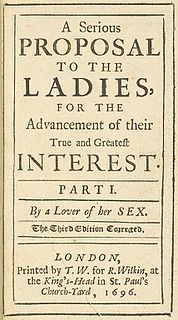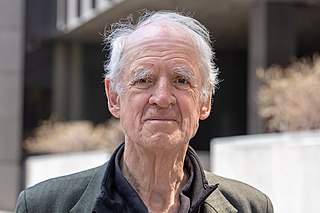A Quote by Steven Pressfield
When we see others beginning to live their authentic selves, it drives us crazy if we have not lived out our own.
Related Quotes
True Godliness doesn't turn men out of the world, but enables them to live better in it, and excites their endeavors to mend it. ...We have nothing that we can call our own; no, not our selves: for we are all but Tenants, and at Will, too, of the great Lord of our selves, and the rest of this great farm, the World that we live upon.
how wearisom Eternity so spent in worship paid To whom we hate. Let us not then pursue By force impossible, by leave obtain'd Unacceptable, though in Heav'n, our state Of splendid vassalage, but rather seek Our own good from our selves, and from our own Live to our selves, though in this vast recess, Free, and to none accountable, preferring Hard liberty before the easie yoke Of servile Pomp
Most of us live our lives desperately trying to conceal the anguishing gap between our polished, aspirational, representational selves and our real, human, deeply flawed selves. Dunham lives hers in that gap, welcomes the rest of the world into it with boundless openheartedness, and writes about it with the kind of profound self-awareness and self-compassion that invite us to inhabit our own gaps and maybe even embrace them a little bit more, anguish over them a little bit less.
I believe one of our souls' major purposes is to know, love, and express our authentic selves. To live the life and be the person we were created to be. However, our true selves only emerge when it's safe to do so. Self-condemnation, shame, and guilt send your true nature into hiding. It's only in the safety of gentle curiosity, encouragement, and self-love that your soul can bloom as it was created to do.
The attentions of others matter to us because we are afflicted by a congenital uncertainty as to our own value, as a result of which affliction we tend to allow others' appraisals to play a determining role in how we see ourselves. Our sense of identity is held captive by the judgements of those we live among.
We define our identity always in dialogue with, sometimes in struggle against, the things our significant others want to see in us. Even after we outgrow some of these others—our parents, for instance—and they disappear from our lives, the conversation with them continues within us as long as we live.
To be true to ourselves, however, is not an easy task. We must break free of the seductions of society and live life on our own terms, under our own values and aligned with our original dreams. We must tap our hidden selves; explore the deep-seated, unseen hopes, desires, strengths and weaknesses that make us who we are. We must understand where we have been and where we are going.
Before making peace, war is necessary, and that war must be made with our self. Our worst enemy is our self: our faults, our weaknesses, our limitations. And our mind is such a traitor! What does it? It covers our faults even from our own eyes, and points out to us the reason for all our difficulties: others! So it constantly deludes us, keeping us unaware of the real enemy, and pushes us towards those others to fight them, showing them to us as our enemies.



































